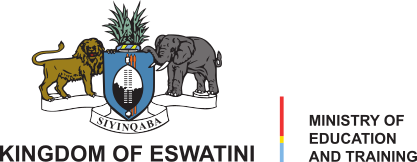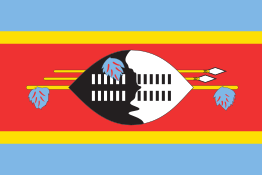Background
The term ECCE is used interchangeably with other terms such as Early Childhood Care and Development (ECCD), Early Childhood and Development (ECD) and Early Childhood and Education (ECE). However, Swaziland opted for ECCE because of the importance of proper care to the holistic development and learning of a child.
In Swaziland ECCE is under the Ministry of Education and Training. This department has 21 personnel: One Senior Inspector who is based in the head quarters and in each region there is one inspector and four coordinators.
Swaziland is embarking on a journey towards implementing an “Integrated Approach to ECCE”. This is within the framework of supporting and addressing the freedom and the rights of a child’s related health, nutrition, care, psychosocial, education needs as well as preparing for the implementation of the ECCE Policy.
All along ECCE has been provided through formal provisioning, but now there has been a shift in ECCE provisioning. The shifting has been a result of the inaccessibility of preschool education which is caused by the following factors:
- Preschools are privately owned and thus they charge exorbitant funds.
- Most children are from poor backgrounds and they cannot afford the fees charged in the ECCE centers.
Small number that can access preschool education exorbitant fees that are charged in preschools Neighborhood Care Points (NCPs) and Kagogo Centres are examples of family and community-based ECCE models, which are an alternative to existing centre-based pre-school model in Swaziland. Furthermore, the integrated approach means addressing the multiple needs of children not only in center-based programmes.
Such approaches reflect challenges in service provision for both formal and informal ECCE provision. The integration will also address the issues of equity and access as it seeks to develop strategies that will create awareness to stakeholders on the critical nature of ECCE, select the most appropriate, cost-effective ECCE models to cover the children and families in need and direct the relevant policies towards a more community and family centred ECCE models in Swaziland. At its best it has the potential to connect diverse actors at different levels and participation of ECCE service providers, through an integrated approach, could lead to commitment as members are joined through shared values and the quality of participation is enhanced.
Definition of Terms
Early Childhood Care and Development: When discussing Early Childhood Care and Development (ECCD), it is important to have a common understanding of what is meant by the term. There are three important parts to the phrase: early childhood–care– development:
Early Childhood: Early childhood is defined as the period of a child’s life from 0-8. This time frame is consistent with developmental psychology’s view of the continuum of children’s development. It is also linked to the importance of the transition for children either from home or from pre-school programme into the primary school
Care: The term care was added in the 1980s to the phrase early childhood development. It was recognition of the fact that young children need care and nurturing. They need attention to their health and nutrition, their evolving emotional and social abilities, as well as their minds. The term care was chosen, rather than education, to move policy makers and program providers away from thinking exclusively in terms of pre-schooling.
Development: Development is defined as the process of change in which the child comes to master more and more complex levels of moving, thinking, feeling and interacting with people and objects in the environment. Development involves both a gradual unfolding of biologically determined characteristics and the learning process. Learning is the process of acquiring knowledge, skills, habits and values through experience and experimentation, observation, reflection, and/or study and instruction.
The ECCD Current situation in Swaziland
In Swaziland ECCE centers are in the form of preschools or neighborhood care points (NCPs). In the country there are 21.6 % of the preschool going age children that have access to early childhood education. Sanitation, Clean water, Nutrition, learning materials are the major problems in ECCE centers.
Activities conducted by the department (ECCD) IN 2010
Inspection of ECCE centers, Survey, Workshops, Provision of Teaching and Learning Materials, Provision of Teaching and Learning Materials, Provision of Teaching and Learning Materials Awareness Campaign and Establishment of centers that will be used as Centers of Excellency.
Awareness campaign
On 22ND September 2010, a campaign was held for Early Childhood Care and Development (ECCD). This activity was supported by EU SET programme and the Government of Swaziland. The objective of the campaign was to raise awareness on the importance of early childhood education. The event was attended by children and their teachers from various preschools of Swaziland. The occasion was moreover graced by the Principal Secretary of the Ministry of Education Mr. P. Muir and both Chief Inspectors of Primary and Secondary schools as well as the ECCD officers. Other dignitaries were stakeholders such as the UNICEF representative and team, the Director National Children Co-ordination Unit, Director of In-service, representative of the Director Save the Children and the entire inspectorate team from the Ministry of Education and Training.
The ECCD awareness campaign march began at the Mbabane market moving along Gwamile Street towards the Prince of Wales stadium. The Correctional services band led the campaign and was followed by drum majorettes from different preschools and primary schools as well as the public.
The march from the market place to Prince of Wales
The day was spiced with different activities from the preschoolers. The performance of the children was splendid and comprised of a variety of activities such as poems, music and dance, lijembe, sibhaca dance, ummiso, and drum majorettes. These activities centered on the developmental domains of language, culture, physical, emotional, social and intellectual development. The use of social issues to express themselves also marked better understanding of life situations.
ENTERTAINMENT FROM THE CHILDREN
The catering committee took it upon themselves to provide children with a nutritional snack meal. All children were fed before participating and given T- shirts.
Speeches were made by various speakers. The Principal Secretary mentioned that preschool education is an important aspect in a child’s development. He stated that government is committed to supporting preschools as throughout the years community preschools received grants. Recently government has increased the personnel in each region bringing the number to five people. Another area of support was the training of teachers in accredited institutions with the hope of the pilot grade 0 programme. The programme will begin in 2012 with 20 preschools country wide.
UNICEF country representative Cristina Bruigolo attended and was grateful of the launch. She mentioned that the campaign was a significant move towards improving the quality of life for the children through early learning. Bruigolo emphasized that by promoting and sustaining early childhood development, the country is investing wisely in children and their families. By the time children enter school they will be more competent socially, emotionally, intellectually and physically developed. The issue of diverse curriculum used in preschools was noted. However, the ECCD department has developed a new curriculum to be implemented next year. The curriculum consists of the following themes: myself –part 1, myself part 2, environment, transport, communication, safety plants, vegetables, fruits, animals, shapes, nutrition
Early Learning Development Standards (ELDS) workshop
UNICEF organized the ELDS workshop for all the ECCD stakeholders. The early Learning Development workshop was held in the month of November2010. It was facilitated by Professor Sharon Lynn Kagan from the USA. Early Learning Standards are specification of what young children should know and be able to do. Standards are important because they state what children able to do and at what age.

